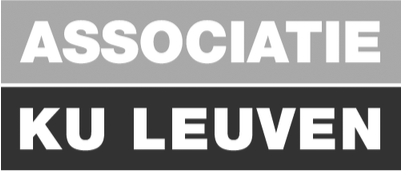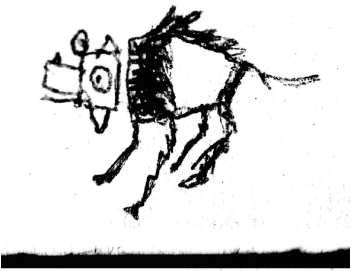VIRGIN RUSSIAN FARMLAND AWAITING ORGANIC CROPS
Russia is set to become the undisputed market leader in organic food production within the next ten years, according to industry experts. Organic farming has been one of the fastest-growing segments of agriculture around the world thanks to its high margins. Although organic foods are generally 20-30% more expensive than foods grown using fertilizers and chemicals, demand for them is growing in leaps and bounds.
The pool of natural resources available for organic farming is, however, limited. Strict requirements for production and labeling are imposed on organic produce: specifically, in order to grow fruit and vegetables in an environmentally friendly manner, farmers must use land on which no fertilizers have been used for at least 20 years. In recent years, very little agricultural land around the world has been left unused, hence there is a shortage of farmland that satisfies the organic production standards.
According to the latest estimates, Russia currently has more than 40 million hectares of virgin farmland. The Russian Ministry of Agriculture has therefore stated that the country’s potential for growth in the organic industry is about 1.5 times greater than the rest of the world’s capacity.
The organic food market in Russia is quite young, but it is expanding rapidly. In 2012, sales of organic produce reached $148 million, which is 7.8 percent more than in 2011. Demand for eco-products is relatively low, however, and accounts for just 0.2 percent of total food sales. The high cost of organic food and the lack of harmonized certification procedures continue to present a challenge to the steady increase in demand for organic food in Russia. The country’s lawmakers are currently working on a bill to support the production of organic agricultural produce. The law will come into force in 2015 and will help Russian farmers bring their products to the EU market.
Currently, most of the organic foodstuffs in Russia are imported into the country from the European Union (Germany, France and Italy), and are positioned as either premium products or super-premium products. Organic food is predominantly sold in large cities with a high concentration of wealthy individuals, in grocery stores that have special departments for organic food, such as «Azbuka Vkusa» («Азбука Вкуса») or «Globus Gurme» («Глобус Гурмэ»). On the whole, the main consumers of organic products in Russia are wealthy citizens in the megapolises who understand the importance of a healthy diet.
As the level of personal income of many Russians continues to grow, it is expected that demand for organic goods will gradually increase over the next few years. Growth in consumer incomes and the development of the legislative framework in the field of organic food production will not only lead to an increase in the demand for organic food and beverages, but will also encourage manufacturers to invest in product development and promotion. Transnational corporations are likely to play a leading role in this regard, but there are also opportunities for small companies, particularly in the lesser known product categories, which are still underdeveloped.
According to Euromonitor International, organic food sales in Russia are set to grow by 30 percent in the period 2010-2015. It is thought that sales will reach $225 million in 2015.
Opportunities for development in Russia’s Organic Market
Exporters should take into account the benefits and potential challenges connected with the Russian market for organic products when considering their marketing strategy.
– The market growth within the organic industry can be attributed to the sheer size of the Russian population – over 143 million people;
– European companies may be able to supply Russia with high-quality and innovative organic products, many of which are not yet present in the Russian market;
– The Russian government’s policies with regard to food quality and safety are going to establish the necessary requirements for organic agriculture once and for all, and create an institutional framework for certification lasting until 2015;
– The shift in consumer preferences towards healthier eating habits and high-quality, eco-friendly foods is a precondition for the industry’s development;
– Due to the rising interest in organic products, the amount of eco-foods is continuing to increase (increased presence on the shelves) at grocery stores;
– The development of mass retailers means that the food market is open to new, healthy products in order to reach, and win over, a new generation of consumers;
– The low level of interest in organic farming even in agriculturally developed regions of Russia means that the door is open to new investors;
– Russia’s accession to the World Trade Organisation will have a positive impact on the conditions for trade and investment between Russia and the European Union.
Three major problems which may hinder the development of the organic food industry in Russia
There are three major obstacles to the expansion of the organic food market in Russia:
– high prices for organic products,
– the lack of a certification system,
– the lack of general knowledge about organic products.
The company CIS Insight conducted a survey in several cities (including Moscow and St. Petersburg) which revealed that the main obstacle to the expansion of the organic food market in Russia is the price gap between conventional and organic food. More than 90 percent of organic products in Russia are imported from abroad, so the cost of these products is much higher: this is due not only to the fact that these products are organic, but also to the transportation costs, customs charges and other related expenses.
Another obstacle is that Russians do not have much faith in local certification systems. This attitude dates back to the post-perestroika period, when more than half of the ingredients listed on the packaging of products were misrepresented. Consumers need more clarity about products sold as organic, which should be defined and protected by federal laws.
The third obstacle to the development of the organic food market in Russia is the lack of general knowledge about organic products both at the governmental level (the government has no data on existing organic production) and at the level of consumers (less than half of respondents had any idea what organic products were). The government plans to educate producers, consumers and policy-makers about research and expansion activities in organic agriculture.
Major Retail Formats Selling Organic Food in Russia
1. Health-food stores
“Bio-Market ” is a small chain consisting of only two stores dedicated exclusively to organic products. 80 percent of its customers came to it because of the organic food it offered. The store contains more than 3500 product lines, ranging from meat, pasta and handmade chocolate to cosmetics and so on. “Bio-Market” not only sells the products but also takes the time to educate its consumers about healthy eating. They organize consultations on diet and nutrition, present new products and arrange events related to organic food for kids.
In 2010, “Bio-Market” introduced the first range of “This Summer” dairy products, certified in accordance with European norms: milk, cheese, sour cream and cottage cheese. The products are manufactured at a farm called “Spartak”, 180 km from Moscow. The farm was built in 2006 and was certified by the Swiss company “Bio.Inspecta” 4 years later. The company’s management intend to focus on developing online sales over the coming years.
Another Russian company, Arivera, offers a wide range of eco-products from European suppliers such as Alce Nero (Italy), EOS BIO (Germany) and Simon Levelt (Netherlands). Their major distribution channels are high-end supermarkets in Moscow, St. Petersburg, the Urals, Siberia, the Far East and the Southern regions of Russia. Arivera also sells its products via its online store.
2. Online stores
Russian consumers are not used to purchasing food via the Internet, so online grocery shopping is not yet widespread. There are several challenges: credit-card penetration is low, there is limited ability to use debit cards online, and there is a general reluctance to conduct transactions online. Russians do not trust electronic payments, and many online stores only accept cash. Online sales account for about 6 percent of total food sales.
3. Pharmacies
Pharmacies have a more limited range of organic products. They usually stock products for diabetics, low-calorie foods, baby food, juices, vitamin-based soft drinks and cosmetics.
According to experts, the potential of the domestic organic products market in Russia is enormous. “It will account for more than 10 % of the global market by 2020. There will be more than 15,000 certified producers of organic agricultural products. This will create 750 000 – 1 000 000 new jobs in rural areas, ” says Svetlana Maximova, a member of the Russian Federation’s Federal Assembly for Agriculture.









